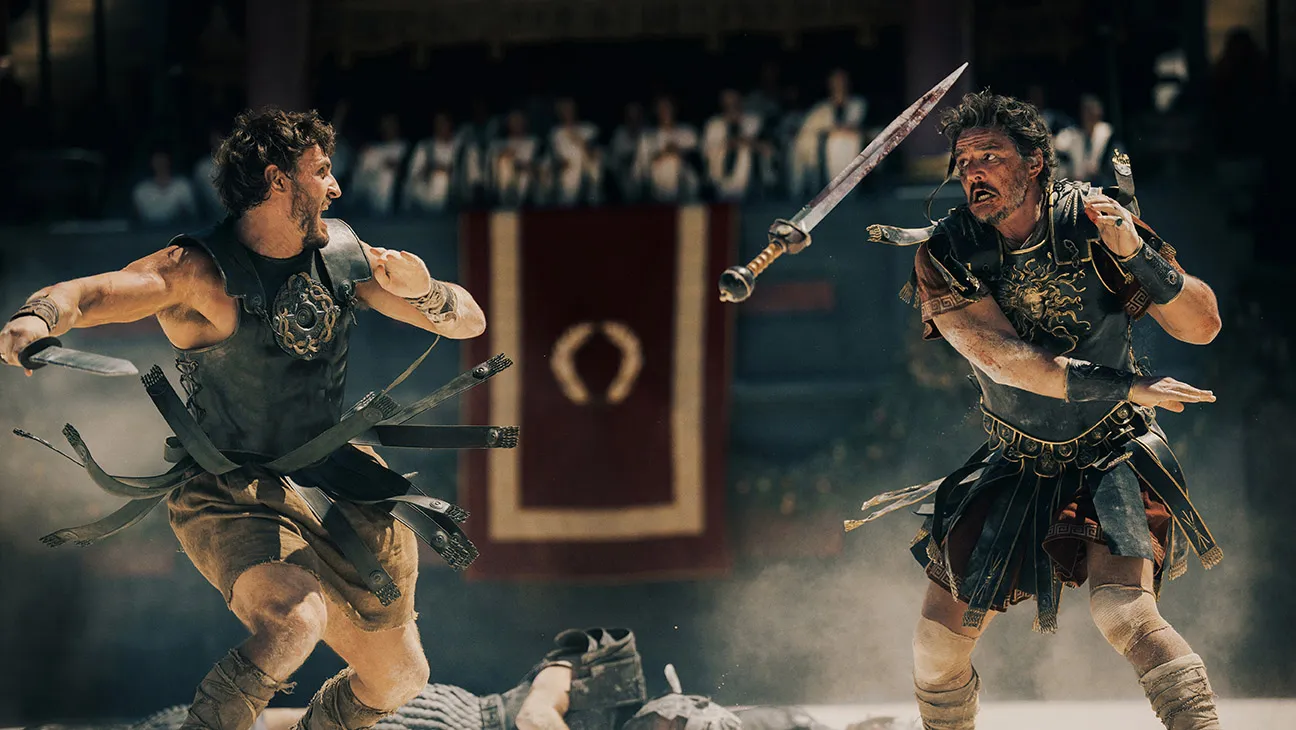In the realm of cinema, few films claim a legendary status akin to that of “Gladiator,” the epic historical drama that earned Russell Crowe widespread acclaim for his portrayal of Maximus Decimus Meridius. However, not all that glitters is gold. Behind the scenes of this cinematic gem, a storm was brewing, one that might tarnish the legacy of both the film and its celebrated star.

Russell Crowe, known for his intense and fiery demeanor, both on and off screen, was involved in a contentious dispute that has recently resurfaced, casting a shadow over his acclaimed performance. Allegations made by the late producer Branko Lustig in the book *The Men Who Would Be King* by Nicole LaPorte, highlight a darker undertone to the production of “Gladiator.”
According to reports, Crowe allegedly threatened to “kill” Lustig “with [his] bare hands” during a heated 3 a.m. phone call over wage disputes with the crew. This damning accusation, purportedly followed by an immediate distress call to Steven Spielberg from Lustig, begs a reconsideration of the pressures and conflicts that bubble beneath the surface of major Hollywood productions.
Maximus Behind the Camera: The Allegations Against Crowe
The irony of Russell Crowe, embodying the virtuous and stoic Maximus, while allegedly engaging in such volatile behavior off-camera, paints a complex picture of the actor. His commitment to the role was palpable, yet it seems Crowe may have struggled with the collaborative demands of filmmaking. His alleged reluctance to deliver one of the film’s most iconic lines, “And I will have my vengeance, in this life or the next,” suggests a tension between the actor’s vision and the directorial lead, Ridley Scott. Crowe’s reported comment post-shooting, claiming he could “make even sh*t sound good,” further adds layers to his tumultuous relationship with the production team.

While these accounts from *The Men Who Would Be King* might be dismissed by some as typical Hollywood hyperbole, they raise important questions about the nature of artistic collaboration and the pressures endured by those in the limelight. The allegations, if true, not only complicate Crowe’s legacy but also reflect the often tumultuous nature of film production, where artistic temperaments and high stakes can lead to intense confrontations.
Reflecting on a Tarnished Legacy
“Gladiator” remains a cornerstone of film history, a testament to the power of storytelling and the allure of ancient Rome. Yet, the shadows cast by these allegations remind us that behind every masterpiece, there is a human element, often imperfect and fraught with conflict. As fans and critics alike revisit the splendor of “Gladiator,” they must also grapple with the complexities of its creation—a process marked by both artistic brilliance and human frailty.

In sum, Russell Crowe’s portrayal of Maximus will continue to be celebrated for its depth and ferocity, but the stories from behind the scenes serve as a poignant reminder that even the most epic tales are grounded in reality, complete with its inherent flaws and challenges. The discourse surrounding these allegations will likely persist, as audiences and industry insiders reflect on the sometimes murky intersection of character, creativity, and conflict in Hollywood.